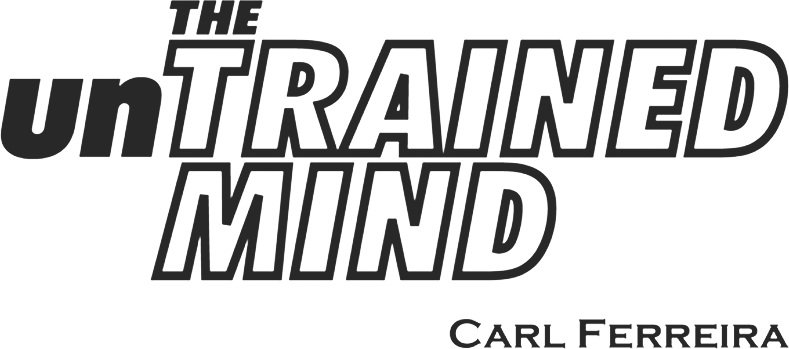Why a workbook?
Making the commitment and sacrifice to show up for practice is easy, not confusing default activity with productivity is hard work. The unTrained Mind workbook can be summarized in a 3-step process:
Understand the neuroscience of the mind and it’s relationship to performance.
Implement a Performance Plan.
Possess the discipline to utilize mental performance tools daily.
The workbook is designed to learn and facilitate discussion within the athlete to learn more about themselves, then take step-by-step action in becoming the greatest version of yourself.
An athlete is always in transit from where they are to where they want to go. In my experience, one of the biggest developmental gaps is between knowledge and applied knowledge. Meaning it’s less about saying “I know,” and more about the possessing the mindset of taking intentional action towards a desired goal.
Every athlete wants to reach their potential, but change doesn’t happen automatically. Change occurs when a focused athlete can consistently operate on the edge of their ability. Mental training is a powerful skill, which allows an athlete to trust their technical and physical training when it matters most, which ultimately takes their game to the next level.
The workbook is broken down into four primary steps
-

Step 1: The Mind
*Learn about the four pillars of athletic performance: Technical. Tactical. Physical. Mental.
*Learn how mental skills affect performance.
*Learn how the mind defaults to programmed mindsets and habits.
*Learn how 95% of our thoughts are in the past, and preventing athletes from performing in the present moment.
*Learn about the power of self-care, and how to establish a better relationship with your future self.
-

Step 2: Self-Discovery
*Learn about the power of subconscious programming, and how it affects everything.
*Dig inside the inner game of self-discovery.
*Identify personal strengths and weaknesses.
*Learn how belief systems and limiting beliefs affect performance.
*Learn how to deconstruct old programs and negative performance patterns that are limiting performance.
-

Step 3: Implementation
*Learn how to create your future by implementing high performance behaviors, mindsets, and habits to elevate performance.
*Implement the five high-performance mental skills: Goal setting. Self-talk. Visualization. Energy. Stress response: refocus “next play” strategies while performing.
*Implement the four C’s of high-performance Mindsets: Commitment. Confidence. Concentration. Composure
-

Step 4: Game Plan
*Pre and post practice journaling.
*Prepractice mental performance rituals.
*Game day rituals.
*Pregame mental preparation rituals.
*Standards of Performance: specific strategies and techniques for competition.
*Refocus “next play” strategies to not miss mentally.
*Post-competition self-analysis.


